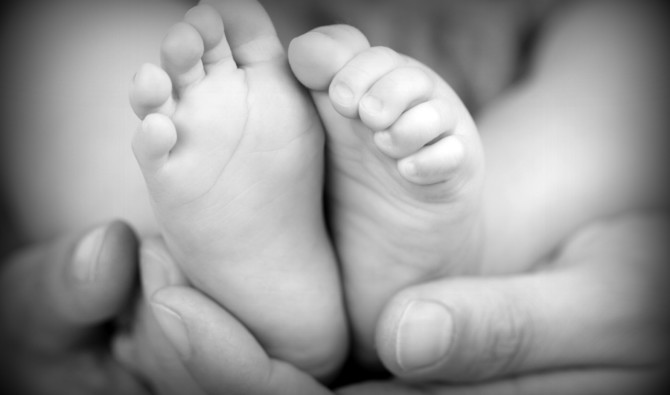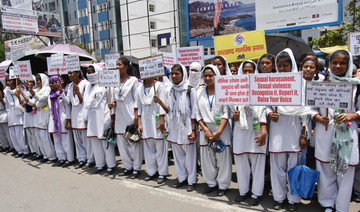JAKARATA: The Indonesian Child Protection Commission (KPAI) on Saturday urged the police to improve scrutiny of digital platforms where traffickers are believed to have migrated to do their business after the arrest of four people in Bali and East Java for allegedly selling babies for adoption on Instagram.
KPAI Vice Chairwoman Rita Pranawati said there are always people who would be willing to take in babies from unwanted pregnancies, especially those born out of wedlock or from women who wanted to give up their unborn babies from unwanted pregnancies.
“It is a common practice, especially when adopting babies legally takes a lengthy process. But using Instagram as a platform to look for and give up these babies is new,” Pranawati told Arab News.
“This practice amounts to trafficking since it involves a financial transaction. The police should beef up their supervision on photo-sharing sites and other digital platforms used for communications and exchanging messages,” she added.
Surabaya police foiled an attempt earlier this month to sell an 11-month-old baby boy to a woman in Bali who was willing to pay 15 million rupiah ($980) to the 22-year-old biological mother from Surabaya, the capital of East Java province.
The two women were arrested along with two accomplices, a man who set up the Instagram account acting to offer family services and counseling — which has been deleted — and a midwife in Bali who acted as the middle woman in the transaction.
East Java police spokesman Frans Barung Mangera said the mother, identified as Lariza, was mired in debt when she saw the Instagram account operated by 29-year-old Alton, a resident of Sidoarjo, in Surabaya. The account offered family services, which triggered Lariza’s interest. The mother of three then followed up the offer through direct messaging.
Lariza then took her youngest child, the 11-month-old boy, to Bali to meet the midwife who had been in touch with Alton and who arranged to meet her with the prospective buyer, a 36-year-old housewife in Badung, Bali.
The midwife, identified as Sukawati, gave Lariza a letter of her consent to give up her baby for adoption to the housewife, identified as Ni Nyoman.
“Lariza received her 15 million rupiah, while Alton received two million rupiah and Sukawati received 2.5 million rupiah. When the transaction was finished, the buyer took the baby with her,” Mangera said.
According to the police, Alton offered his service to match-make women with unwanted babies to parents who are desperate to have children, so that the women do not need to abort their pregnancies, and he confessed that he has sold four babies through the exchanges on the platform.
The four could face up to 15 years in prison if found guilty of violating the law.
The police returned the baby to his parents on Friday after a month of separation.
“We handed over the baby to the parents who will let the baby’s paternal uncle take care of him, under the supervision of the police,” Surabaya police chief detective Sudamiran said.
The baby’s father said his wife told him she had given up their son for adoption and that he had no idea that she had sold him.
Pranawati said such practices have the potential to violate the child’s rights to know his or her origin and true identity.
She added that if a mother was willing to give away her baby, it would be better for it to go to a foster care institution so that they can arrange for a proper and legal adoption.
“At least that way we can still keep track of the baby’s origin and biological parents. We also need to ensure that the adoptive parents’ extended family agrees to the adoption, in case something happens to them and the extended family had to take care of the adopted child,” she said.
“We have had cases when an adopted child was abandoned after something happend to the adopted parents because the parents’ extended family objected to the adoption and did not want to take care of the child,” she added.












